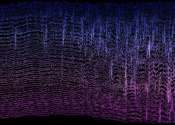Exploring the origins of excitatory and inhibitory neuronal tuning in the postsubiculum
Brain cells can be broadly divided into two categories: inhibitory and excitatory neurons. Excitatory neurons are cells that support the generation of electrical impulses in postsynaptic neurons, thus prompting the activation ...









